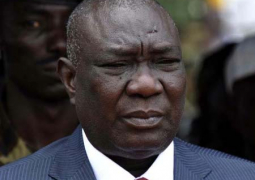
Flying
into Banjul International Airport means having begun your journey from another
airport in a different country. This forces one to compare and contrast
experiences in embarking and disembarking across airports. Following many trips
in and out of the country, some of the differences that stand out for me, and I
believe many like me are the numbers, actions and comportment of personnel one
meets in and around the arrival halls. I’d like to share my experiences and
thoughts with those concerned in the hope that the issues raised will be
studied and remedied where required.
The
number of personnel: As our bus approached the gate to the arrival hall at the
airport in Yundum, there were about seven people on the runway-side of this
entrance, and as we entered the hall, so did they. Some were in civilian
clothing and others in uniform. Upon entrance in the hall before immigration,
there was an equal number and composition. In all, there were at least 30
people - some loitering, others looking on, while few were occupied with work.
I contrasted this with the Dakar and the Cape Verdean airports, where I just
passed through in my most recent trip. The contrast couldn’t be more striking.
In Praia, Cape Verde, whose airport is of similar size as ours, there was not a
single person before or after the entrance to the arrival hall. There were two
neatly dressed immigration officers in a counters, who acted very
professionally and businesslike. At the
entrance between arrival and conveyor belt zone, there was one medical officer
who asked for vaccination cards. Again at the conveyor belt there was no
non-passengers loitering about. At the exit scanner point, there were 3 or 4
officials. The disembarkation process in Dakar is quite similar with Cape
Verde.
Actions
of Personnel: In Yundum, I have seen on many occasions immigration officers
take passports from arrivals, remove them from the queue and treat them ahead
of those in front of them in the queue. I have never seen this behavior in many
of my arrivals anywhere else in the world. This is an unprofessional and
shameful practice that needs to stop. I remember once flying from Manchester in
2007 just after the London bombing when airports were experiencing very long
queues in UK airports due to extra security measures. I was amongst thousands
that waited patiently in long queues. However, upon arrival in the Gambia in a
queue of less than a hundred people, I was very embarrassed to see an
immigration officer proudly and unapologetically snatching the passport of a
guy behind me and signaling for him to follow him. He proceeded to plant the
individual in front of the queue for immediate processing by the immigration
official. You can imagine the disbelief and dismay in the eyes of non-Gambian
visitors.
Comportment
of Personnel: The other thing that conspicuously contrasts the Gambian airport
from others is the comportment of the officials. In other airports including
Dakar, officials are generally very composed, professional in demeanor and
elegant. In the Gambia on the other hand, they are far too casual, informal and
nonchalant. It is not uncommon to see officials shouting and potters jumping on
and off the conveyor. I have to say here that, the ‘on and off the conveyor’ is
usually out of necessity to redirect strayed luggage. So, I take this
opportunity to tell responsible authorities that a simple modification work on
the conveyor will ameliorate this issue of bags straying off. Such
modifications can be seen in many other airports. Please take a look for how
and try to address this issue.
At
baggage claim: Some of those non-passenger individuals met at the entrance and
the immigration processing will follow the arriving passengers to the conveyor
belt, joining the uniformed potters and others who came to pick up family
members. In short, there are too many individuals loitering about making the
very small area overly congested.
The
question is, are all these people officials or workers? If they are, do they really
have to be standing around and following passengers? Wouldn’t it be preferable
for them to be at their desks? And if they are not staff, responsible officials
should ensure that they give the arriving passengers space to sort themselves
out.
Last
but not the least, what about the scanning? Again many people have been asked
to pay duties on personal items and belongings that I have never seen happened
at any other airport. On many occasions I travelled through Dakar with a
luggage without any question and trying to enter with same luggage into the
Gambia and I’ll be questioned after scanning. Why?
Remember
the old wise saying that: ‘First impressions are the most lasting ones’.
Airports are perfect space for making first impressions and perceptions - Good
or Bad!
As
we navigate into a ‘New’ Gambia, we have to do away with certain ‘Old’ ways as
individuals, communities and institutions.
Many
involved in these actions may not be conscious of the discomfort and
inconvenience caused to often very tired and jet-lagged traveler, as well as
creating a negative image for the country. Cognizant of the fact that unless
one experiences this it may not be that of an issue, my objective here is
two-fold. Firstly, to tell my brothers and sisters concerned that the practice
is not normal and is detrimental to efforts to project a tourist friendly
country. Secondly, for the Civil Aviation Authorities and tourism authorities
to look into the matter and take the necessary remedying steps.
Remember
that millions of dollars are spent to attract visitors to the Gambia. We should
not therefore nullify those costly efforts by driving them away through lack of
failure of undertake minor but significant changes in our ways.
Jerreh
Barrow
Jambanjelly




